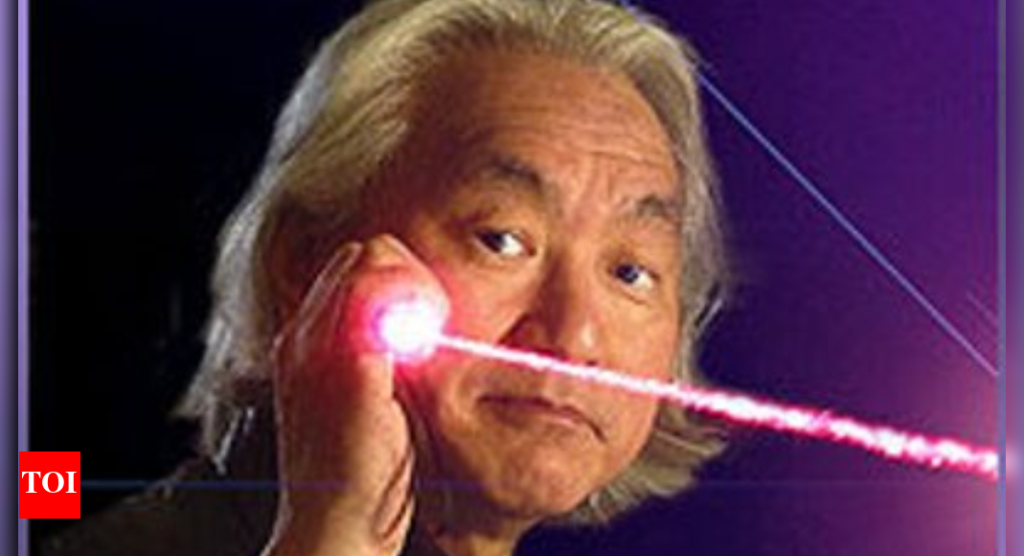Listen to the article
Renowned Physicist Warns of Deepfakes Spreading Alien Spacecraft Claims
Renowned theoretical physicist Michio Kaku has issued an urgent warning about artificial intelligence-generated deepfake videos that misuse his image to spread false claims about interstellar comet 3I/ATLAS. The fraudulent videos falsely attribute statements to Kaku suggesting the celestial object is an alien spacecraft.
“There has been a sudden rise of fraudulent unauthorized deep fake AI videos, impersonating me, misleading the public with crazy false claims that are not my own,” Kaku stated in a tweet this week. He called on technology platforms and AI industry leaders to take immediate action against these deceptive videos.
The sophisticated deepfakes manipulate genuine footage from Kaku’s previous interviews about 3I/ATLAS, which is only the third confirmed object detected entering our solar system from interstellar space. While Kaku has expressed scientific interest in studying the object’s unusual characteristics, the AI-altered videos fabricate claims that he believes 3I/ATLAS is “almost certainly” an alien spacecraft that has transmitted energy to Mars or the Sun.
This misinformation campaign emerges amid ongoing scientific debate over the nature of 3I/ATLAS. The astronomical community remains divided, with theoretical physicist Avi Loeb notably suggesting the possibility that the object represents alien technology. However, physical evidence shows that 3I/ATLAS ejecting water vapor behaves like a conventional comet.
The overwhelming scientific consensus maintains that 3I/ATLAS is a natural celestial object, making the deepfake videos particularly problematic as they exploit public fascination with potential extraterrestrial discoveries.
Kaku is not alone in being targeted. Fellow physicist Brian Cox has also reported similar deepfakes using his likeness circulating across social media platforms, particularly on YouTube. Both scientists have urged platforms to accelerate their content removal processes, though critics note that YouTube and TikTok have been slow to respond to these reports.
The incident highlights the growing challenge of combating AI-generated misinformation in scientific discourse. As deepfake technology becomes increasingly sophisticated, distinguishing authentic expert commentary from fabricated content grows more difficult for average viewers.
The situation is particularly concerning in astronomy and space science, where public interest is high but technical understanding may be limited. False claims about alien technology can spread rapidly through social media, potentially undermining public trust in legitimate scientific announcements.
3I/ATLAS has attracted significant attention since its discovery as one of the rare confirmed interstellar visitors to our solar system. The first such object, ‘Oumuamua, sparked similar debate in 2017 when it displayed unusual characteristics that some researchers suggested might be consistent with artificial origin. However, natural explanations remain the scientific standard for these phenomena without conclusive evidence suggesting otherwise.
Content moderation teams at major platforms face growing pressure to develop more effective tools for identifying and removing deepfake videos, especially those targeting public scientific figures. The challenge is compounded by the rapid evolution of AI capabilities that make fake content increasingly convincing.
Scientists like Kaku and Cox continue advocating for responsible science communication while fighting misrepresentation of their views. Their experiences highlight the vulnerability of public scientific discourse to technological manipulation and underscore the importance of media literacy in an era of advanced AI content generation.
As investigations into 3I/ATLAS continue through legitimate scientific channels, astronomers emphasize the importance of following evidence-based approaches rather than sensationalized claims about extraterrestrial technology. Meanwhile, the scientific community awaits more robust solutions from technology platforms to address the growing threat of deepfake misinformation.
Fact Checker
Verify the accuracy of this article using The Disinformation Commission analysis and real-time sources.




14 Comments
While the characteristics of 3I/ATLAS are intriguing, the claims about it being an alien spacecraft are simply not supported by credible scientific evidence. We must be careful not to spread unverified speculations.
Kaku is right to be concerned. Deepfake technology can be used to create very convincing but completely fabricated content. We need stronger safeguards against this kind of disinformation.
I agree. Deepfakes pose a serious threat to the integrity of information and public discourse. Platforms and AI leaders must take decisive action.
Kaku is right to call out these deepfake videos. We should be wary of any claims that seem to be coming from experts but don’t align with their known positions and statements.
Interesting that Kaku is warning about deepfake videos falsely attributed to him. It’s important to be vigilant about misinformation, especially when it comes to scientific topics like interstellar objects.
Absolutely. Spreading false claims through deepfakes is unethical and can mislead the public. I’m glad Kaku is speaking out against this.
Deepfakes are a serious threat to truth and transparency. I’m glad Kaku is using his platform to raise awareness and push back against this kind of deception.
Agreed. Combating deepfakes and other forms of misinformation should be a priority for tech companies, policymakers, and the public.
It’s concerning to see misinformation campaigns exploiting respected scientists like Kaku. We need to be extremely careful about verifying claims, especially when they seem extraordinary or fantastical.
Exactly. Extraordinary claims require extraordinary evidence. Making unsubstantiated claims undermines public trust in science and rational discourse.
Kaku is right to call out these deepfake videos. We need to be extremely cautious about any claims that seem to come from experts but don’t align with their known positions and statements.
It’s unfortunate that Kaku’s image and voice are being used to spread false claims. We should be vigilant about verifying information, especially when it comes to extraordinary scientific and technological assertions.
Absolutely. Deepfakes that misuse the credibility of respected experts like Kaku are a serious problem that undermines public trust. Fact-checking is critical.
While Kaku has expressed scientific interest in studying 3I/ATLAS, the claims about it being an alien spacecraft are clearly false. It’s important to rely on credible sources and not get swept up in sensational misinformation.